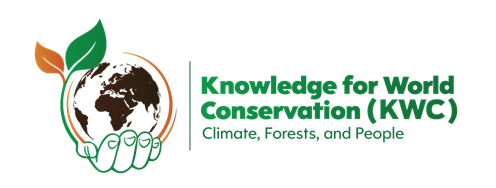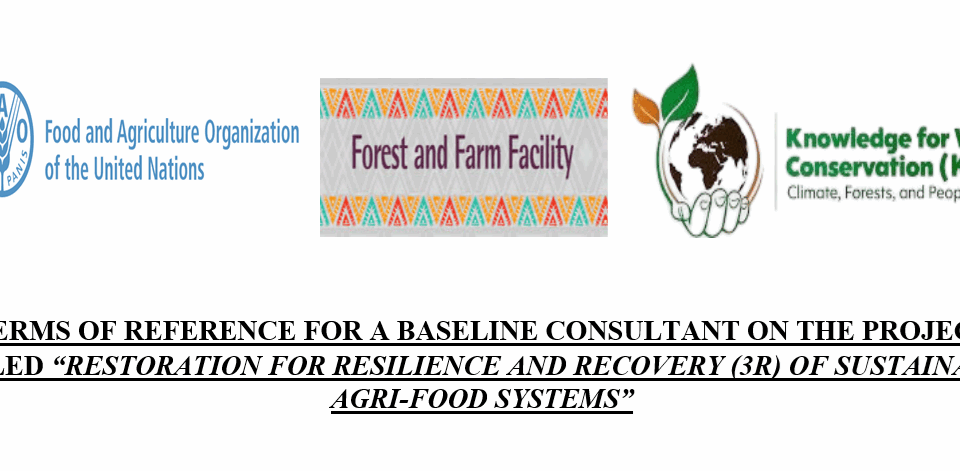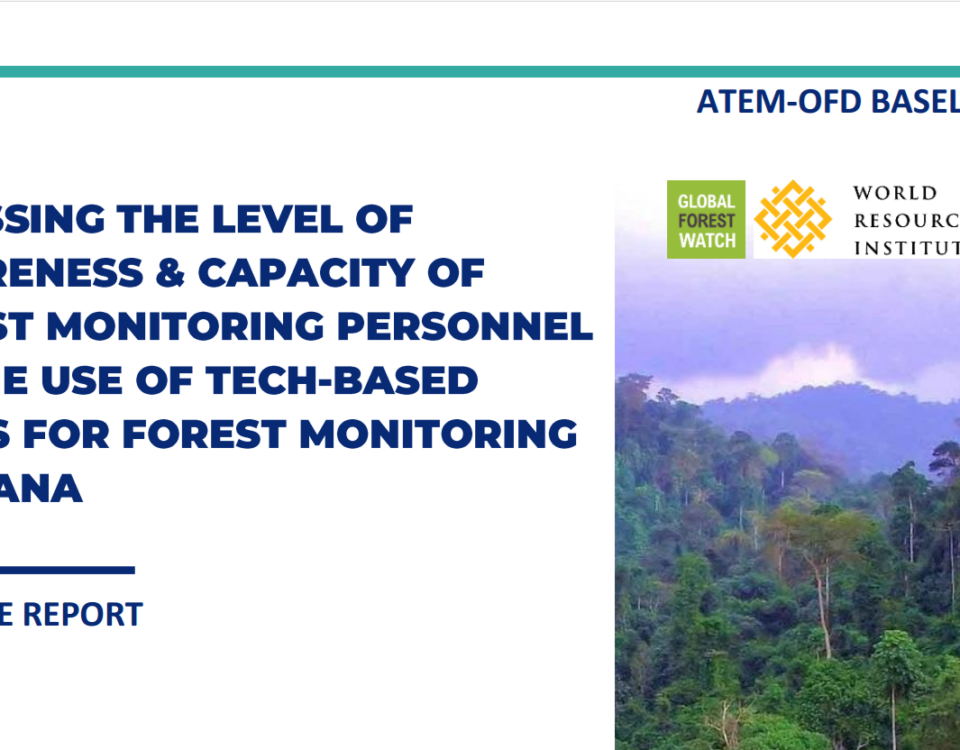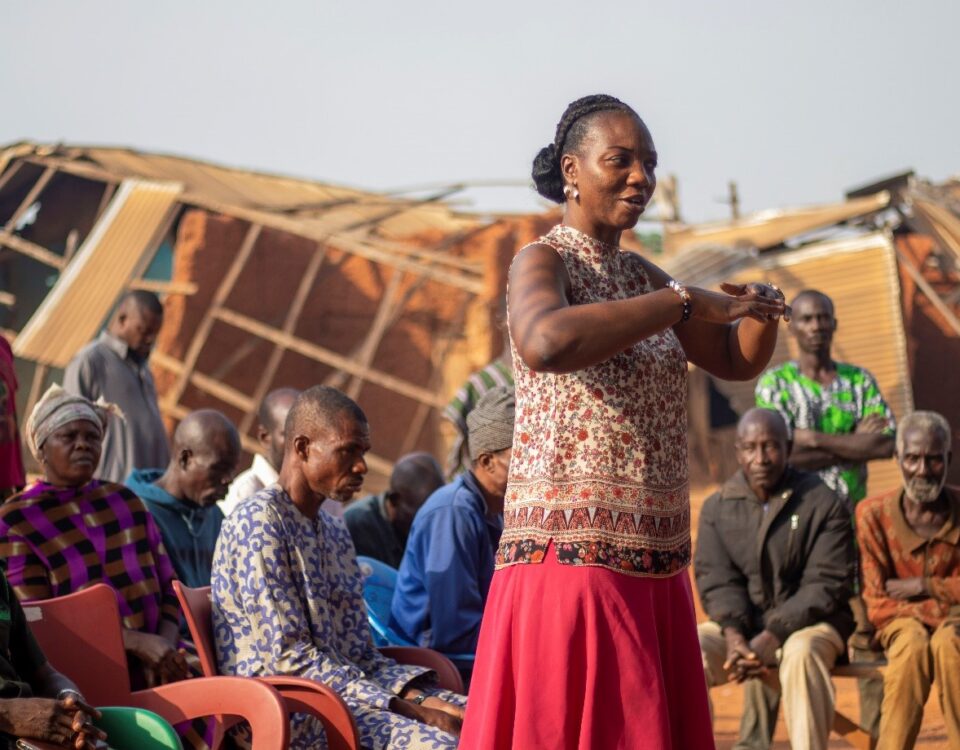
As part of Ghana’s commitment to timber legality under a Voluntary Partnership Agreement (VPA) signed with the European Union in 2009, forest enterprises must comply with several forest legality standards. While larger enterprises have the capacity to adapt their operations, small and medium forest enterprises (SMFEs) continue to present gaps in forest harvesting operations.
T o address this, the FAO-EU Forest Law Enforcement, Governance and Trade (FLEGT) Programme partnered with the Kumasi Wood Cluster Association (KWC) and Preferred by Nature to scale up support to SMFEs to comply with the forest operational planning and health and safety requirements, in line with the Forestry Commission’s Manual of Procedures. Following dedicated trainings, operators are now better prepared to comply with the Ghana Timber Legality Assurance System (GhLAS).
Supporting SMFEs to meet legality requirements
During a previous FAO-supported project, KWC conducted mock audits of SMFE operations, highlighting difficulties collecting and processing the data needed to produce forest harvesting operational plans, needed to operate legally. Understanding the challenges faced by SMFEs, KWC and Preferred by Nature conducted three workshops across Ghana’s timber-producing regions, benefiting 45 Timber Utilization Contract holders. Throughout the workshops, participants learned how to prepare and implement five-year operational plans and annual logging plans, and were made aware of common infractions gathered during forest audits by the Timber Validation Department of the FC.
Health and safety "makes good business sense"
The project also presented an opportunity for a further 55 beneficiaries of previous FAO-funded projects to receive refresher training and hands-on guidance on production documentation and health and safety requirements.
A representative from the Factory Inspectorate Department (FID) of the Ministry of Labour and Employment delivered the health and safety training as they are the Governmental Agency mandated with the oversight responsibility of monitoring and enforcing occupational health and safety. Mr Baffour Asamoah, an FID official, explained to participants that ‘a safe and healthy workplace is important for every employer and employees and makes good business sense.
Ms Esi Banful, the KWC Project Officer, further emphasized to the beneficiaries that ‘businesses that meet legality and health and safety requirements have the potential to gain access to wider and more lucrative international markets, improving livelihoods for timber producers.
Recognizing the importance of these trainings, it remains critical that SMFEs are continually supported to ensure they can access wider markets and the accompanying benefits.
For more information, see:
FAO in Ghana FAO-EU FLEGT Programme Success Story: Targeted trainings allow small and medium forest enterprises (SMFEs) to comply with national legality requirementsSince 2016 the FAO-EU FLEGT Programme has supported 25 projects in Ghana, amounting to over USD 2 700 000, primarily focusing on capacity building among private sector operators, communication and the establishment of the GhLAS.
The FAO-EU FLEGT Programme is a global demand-driven initiative that provides technical support and resources for activities that further the goals of the EU’s FLEGT Action Plan. The Programme is funded by the European Union, the Swedish International Development Cooperation Agency, and the Foreign, Commonwealth and Development Office of the United Kingdom.



